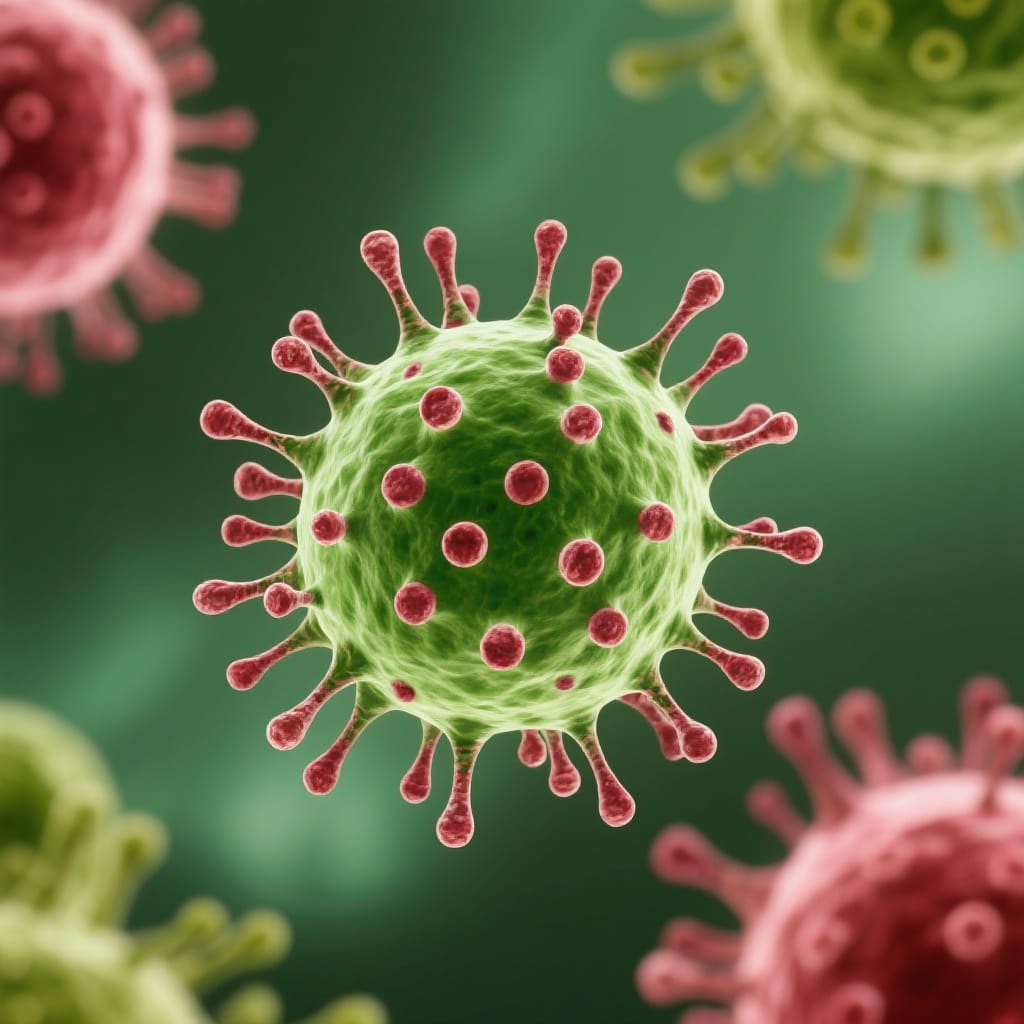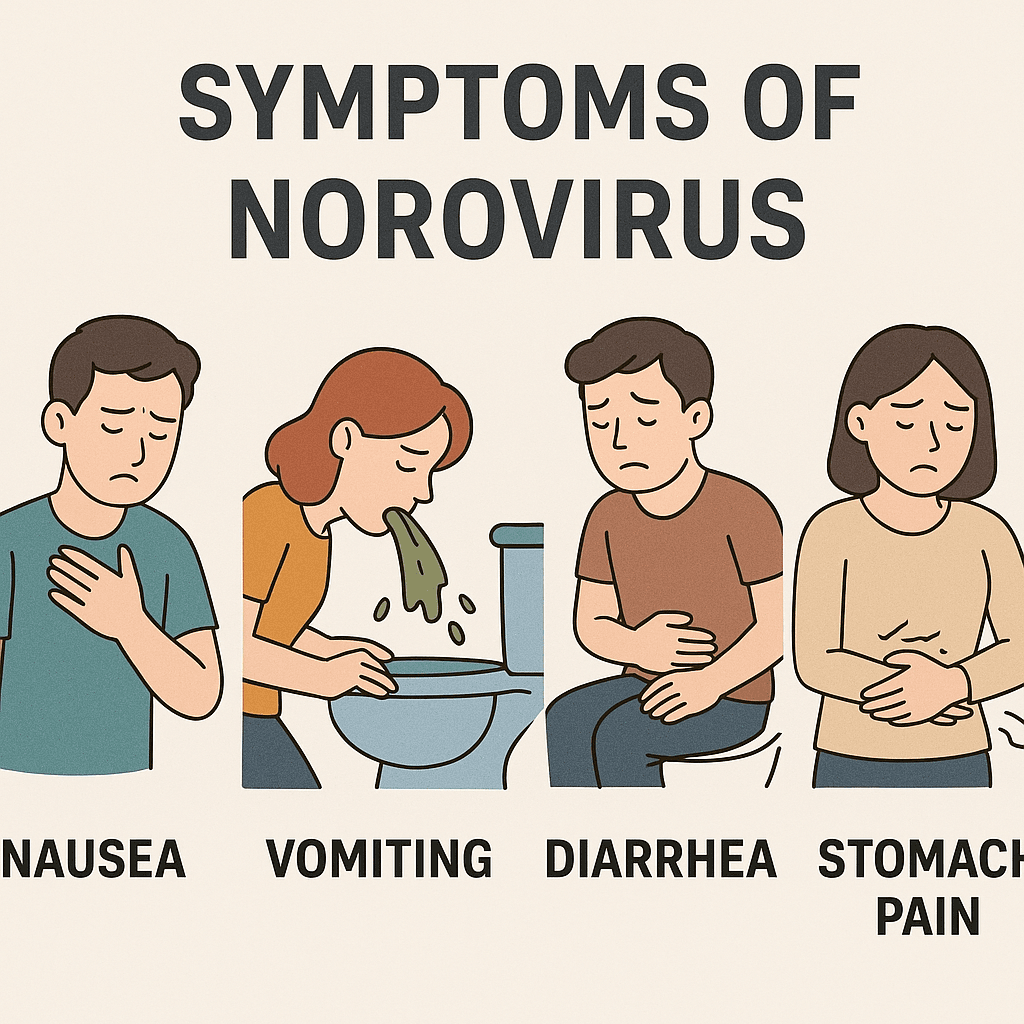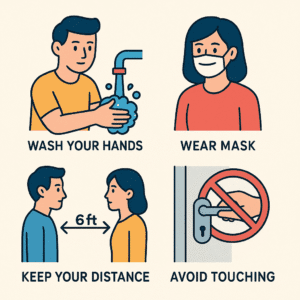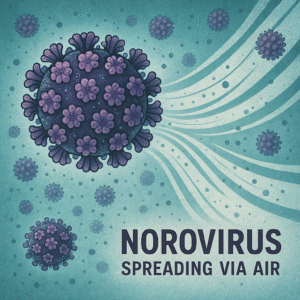Does Hypochlorous Acid Kill Norovirus?

Does Hypochlorous Acid Kill Norovirus? A Beginner’s Guide to Effective Disinfection
Stomach bugs are the worst. One minute, you’re fine; the next, you’re doubled over with nausea, running to the bathroom. If you’ve ever dealt with norovirus, you know how brutal it can be. It spreads like wildfire, especially in schools, daycare centers, and even cruise ships. But what really kills it? You may have heard about hypochlorous acid (HOCl) as a disinfectant, but does hypochlorous acid kill norovirus? Let’s break it down in simple terms and see if it’s the ultimate germ-fighting solution.
Understanding Norovirus: The Stomach Bug That Spreads Fast
Norovirus spreads fast. If one person gets sick, others usually follow. It moves through homes, daycare centers, and cruise ships with ease. How does norovirus spread in households? It sticks to surfaces, lingers in the air after vomiting, and transfers through touch. A tiny amount can infect someone.
Can norovirus be airborne? Mostly, it spreads through hands, food, and contaminated objects. But when someone vomits, tiny virus particles can fill the air. This makes schools and daycare centers high-risk places.
How fast does norovirus spread in a family? Very fast. A sick person touches a doorknob, light switch, or fridge handle. Others touch the same spots and get infected. Without quick cleaning, it keeps spreading. The best way to stop it? Wash hands often and use strong disinfectants.
The Role of Hypochlorous Acid in Killing Norovirus
Norovirus spreads fast. One sick person can infect a whole family in no time. You clean, wash your hands, and still—someone else gets sick. So, what actually works? Does hypochlorous acid kill norovirus? Let’s break it down.

How Does Hypochlorous Acid Kill Bacteria and Viruses?
Your body makes hypochlorous acid (HOCl) to fight germs. It breaks down bacteria and viruses, killing them fast. HOCl is strong but safe. That’s why hospitals and food industries use it for disinfection.
What Kills Norovirus on Hands and Surfaces?
Norovirus is tough. It sticks to surfaces and spreads through touch. Regular hand sanitizers don’t work well against it. Bleach can kill it, but it’s harsh. Hypochlorous acid spray is a better choice. It’s strong, yet gentle enough to use around kids and pets.
Does Hypochlorous Acid Spray Kill Norovirus?
Yes! Research shows that HOCl kills viruses like norovirus. It’s used in hospitals, restaurants, and cruise ships to stop outbreaks. Since norovirus spreads fast, proper cleaning is key. Wipe surfaces, wash hands, and use HOCl to help stop the spread.
So, does hypochlorous acid kill norovirus? The answer is yes! It’s a great tool for fighting germs. Add it to your cleaning routine for extra protection.
Norovirus Prevention and Control in Different Settings
Norovirus spreads fast. One sick person can infect a whole group. But you can stop it with good cleaning and hygiene.

At Home: Stop the Spread Early
Norovirus moves quickly. How does norovirus spread in households? A sick person touches the fridge, light switch, or remote. Someone else touches the same spot and gets sick. Clean often. Use hypochlorous acid spray to kill germs. Wash hands well.
In Schools and Daycare: Protect Kids
Kids touch everything. They share toys, desks, and snacks. How to prevent norovirus in schools and daycare? Clean daily. Wipe toys, tables, and door handles. Teach kids to wash hands often. If a child is sick, keep them home.
In Restaurants: Keep Food Safe
Norovirus can spread through food. Norovirus and food safety in restaurants go hand in hand. Sick workers should stay home. Hands must be washed before handling food. Tables and utensils need regular cleaning.
On Cruise Ships: Avoid an Outbreak
Cruise ships have many shared spaces. Norovirus outbreaks on cruise ships are common. The virus spreads fast in buffets and bathrooms. Wash hands often. Use hypochlorous acid spray to disinfect surfaces. Avoid touching your face.
In Hospitals: Protect Patients
Patients in hospitals are at higher risk. Norovirus infection control in hospitals is a must. Doctors and nurses should wash hands often. Visitors should stay home if they feel sick. Strong disinfectants like hypochlorous acid help stop the virus.
Who Is Most at Risk from Norovirus?
Norovirus is nasty. It spreads fast and makes you feel awful. But for some people, it’s even worse. Let’s see who needs to be extra careful.
Kids: They Touch Everything
Kids get sick often. Norovirus infection in children is common because they touch toys, share food, and forget to wash their hands. How does norovirus spread in households? A sick child touches the fridge, remote, or doorknob. Someone else touches the same spot and gets sick. How to prevent norovirus in schools and daycare? Clean surfaces daily. Teach kids to wash hands often. Sick kids should stay home.
Older Adults: A Tougher Battle
Norovirus is harder on seniors. Norovirus gastroenteritis in elderly populations can cause dehydration and weakness. Nursing homes see many outbreaks because people live close together. Norovirus infection control in hospitals and nursing homes is key. Disinfecting surfaces and washing hands help keep seniors safe.
Pregnant Women: Extra Care Needed
Pregnancy is tough enough. Is norovirus dangerous for pregnant women? It can cause severe dehydration, which is risky for both mom and baby. Pregnant women should wash hands often and stay away from sick people.
People with Weak Immune Systems: Harder to Recover
Cancer patients, organ transplant recipients, and others with weak immune systems have a higher risk. Norovirus infection in immunocompromised patients can lead to serious illness. Hospitals use strong disinfectants like hypochlorous acid spray to keep these patients safe.
Can You Get Norovirus Twice in a Month?
Yes! Your body builds short-term immunity, but it doesn’t last long. If exposed again, you can get norovirus twice in a month. That’s why hygiene is key. Keep washing hands and disinfecting surfaces—even after you recover.

Emerging Research and Future Solutions
Norovirus spreads fast. It sticks to surfaces. It hides in food. It can even float in the air after someone vomits. Scientists are looking for better ways to stop it. Let’s see what they have found.
How Long Does Norovirus Stay on Surfaces?
Norovirus is tough. It can live on surfaces for days or even weeks. That’s why cleaning is important. Many people use bleach, but it smells strong. A better choice? Hypochlorous acid spray can kill norovirus without harsh fumes. It is safe and easy to use.
Will There Be a Norovirus Vaccine?
Imagine a shot that stops norovirus. No more outbreaks in schools. No more norovirus outbreaks on cruise ships! Scientists are working on it. But norovirus has many types. That’s why some people get norovirus twice in a month. A vaccine could help, but it is not ready yet.
Why Is Norovirus Worse in Winter?
Ever notice how norovirus spreads more in winter? That’s because of norovirus seasonal trends and prevention. Cold air helps the virus live longer. People also stay indoors more. Schools, hospitals, and restaurants need extra cleaning in winter.
What’s Next in Norovirus Prevention?
Scientists are testing new ways to stop norovirus. New food rules may help with norovirus and food safety in restaurants. Hospitals are improving norovirus infection control to protect elderly populations and immunocompromised patients. New disinfectants—like hypochlorous acid—make it easier to kill the virus fast.
The future looks good. But for now, hygiene is the best defense. Wash your hands. Clean surfaces. Stay safe. Science is making progress. Soon, norovirus may be easier to stop for good.
Conclusion: Fight Norovirus the Smart Way
Norovirus spreads fast. It makes people sick in no time. One person gets it, then the whole family can. It sticks to surfaces. It spreads through touch, food, and even the air after vomiting.
So, does hypochlorous acid kill norovirus? Yes! It’s a strong disinfectant. Hospitals and restaurants use it. It kills germs fast but is safe to use at home.
Want to stay safe? Wash your hands. Clean surfaces often. Use hypochlorous acid spray. Be extra careful in winter—norovirus spreads more in cold months.
Scientists are working on a norovirus vaccine. But for now, hygiene is your best defense. Stay clean, stay safe!
FAQs: Norovirus and Hypochlorous Acid
1. What is norovirus and how does it spread?
Norovirus is a virus that causes stomach flu. It spreads through touch, food, and contaminated surfaces. It can also become airborne after vomiting.
2. Can norovirus be airborne?
Yes, norovirus can spread through the air when an infected person vomits. Tiny virus particles can land on surfaces or be inhaled.
3. How fast does norovirus spread in a family?
Very fast. A sick person touches a surface, and others get infected by touching the same spot. Quick cleaning and handwashing help stop the spread.
4. Is hypochlorous acid safe to use at home?
Yes. It is strong enough to kill germs but safe for homes with kids and pets. It has no harsh fumes like bleach.
5. How can I prevent norovirus at home?
Wash hands often, clean surfaces, and disinfect with hypochlorous acid spray. Avoid sharing food and drinks with sick people.
6. Can you get norovirus twice in a month?
Yes, immunity to norovirus is short-term. You can catch it again if exposed to a different strain.
7. What’s the best way to clean after norovirus?
Use hypochlorous acid or bleach to disinfect surfaces. Wash clothes and bedding in hot water. Wash hands often.
8. What’s next in norovirus prevention?
Scientists are developing vaccines and new disinfectants. Until then, frequent handwashing and surface cleaning are key.

.svg)



